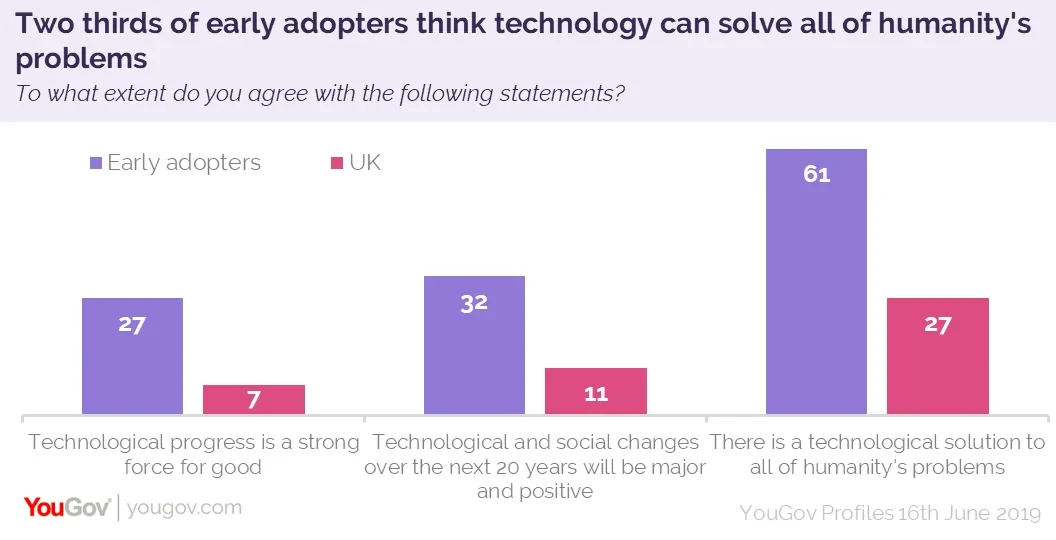We’ve all seen queues of shoppers outside mobile phone shops when a new model is released, and the media attention given to product announcements by the likes of Apple and Samsung. But who are these consumers who snap up new devices so eagerly?
New YouGov research reveals that 4% of the population - some 1.8m people - are early adopters when it comes to technology, always on the hunt for the latest gadgets and willing to spend money on upgrades as soon as they’re available whether they need them or not.
A further 6% said that they were always keen to try out new technology as soon as it's released, and 20% said that they buy new gadgets after they've been out a while.
Early adopters are more likely to be younger - just 1% of men over 60 would class themselves as early tech adopters and almost no women over 60 would (0%). Comparatively 9% of men between the ages of 18 and 24 and 10% of male 25 to 39 year olds are early adopters - the largest percentages of any other age group. This decreases to 3% of women aged 18 to 24 and a further 3% of women aged 25 to 39 who would describe themselves as actively on the lookout to buy new technology.
When we compare these early adopters to the wider population we also see other differences. They're more likely to be working full-time (63% versus 41%) and to be in the IT field (11% versus 3%). They are also far more likely to commute by train (18% versus 7%).
We also see that they have wildly different views on the effects of technology on society. Some 27% of early adopters think that technological progress is a strong force for good, versus just 7% of the nation as a whole.

They also believe that the impact of technological and social changes over the next 20 years will be major and positive (32%) to a far greater extent than Britons on average (11%).
So great is this optimism that 61% of early adopters say that there is a technological solution to all of humanity's problems. But only 27% of the nation as a whole concurs.









